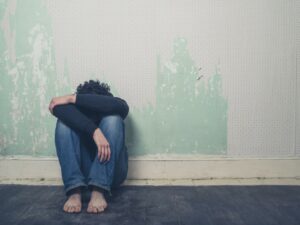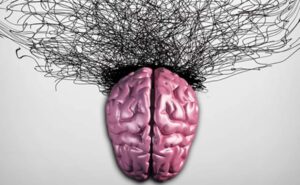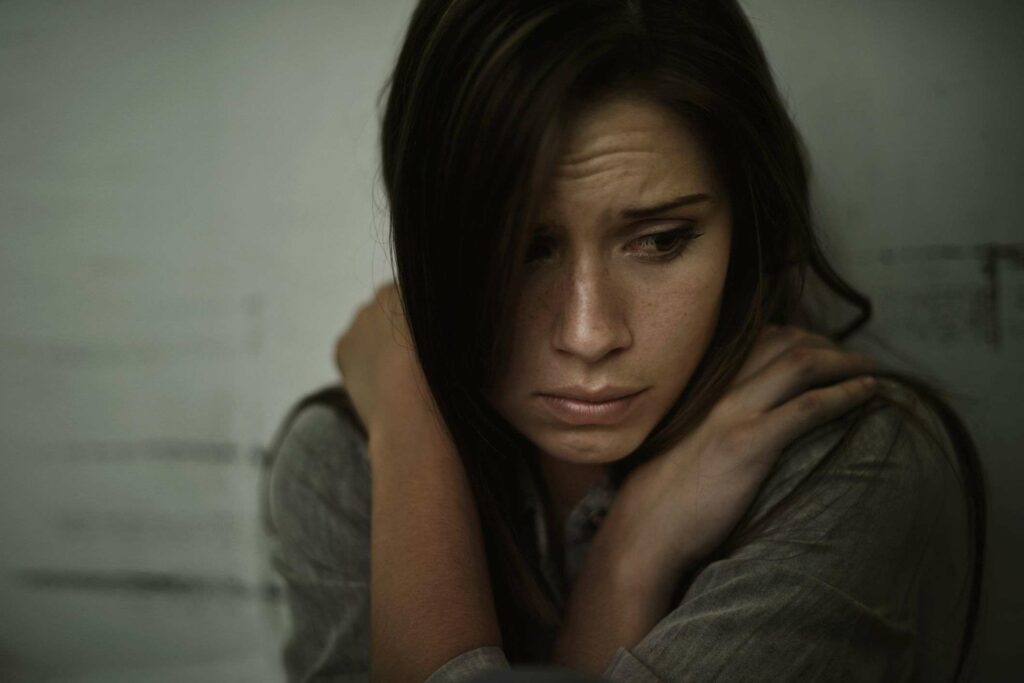Bipolar and schizophrenia are mental disorders that are characterized by abnormal mood swings. Patients with bipolar and schizophrenia often experience periods of mania or hypomania, followed by periods of depression. These mood swings can be so severe that they interfere with a person’s ability to function normally. This can be a very difficult condition to live with, and it can often be difficult to diagnose. In this comprehensive guide, we will discuss all aspects of both conditions including differences and similarities. Also, the symptoms, and treatment options!
Contents
What Is Bipolar Disorder?
 Bipolar disorder is a mental illness that is characterized by extreme mood swings. These mood swings can range from periods of mania, where an individual feels excessively happy and energetic, to periods of depression, where an individual feels extremely sad and hopeless.
Bipolar disorder is a mental illness that is characterized by extreme mood swings. These mood swings can range from periods of mania, where an individual feels excessively happy and energetic, to periods of depression, where an individual feels extremely sad and hopeless.
This condition is also known as manic depression, and it can severely impact an individual’s ability to function in day-to-day life. In fact, it is believed that bipolar is one of the leading causes of disability worldwide.
Bipolar disorder is a chronic condition, which means that it lasts for a long period of time, and it can be difficult to manage. It is often treated with medication and therapy. It is important for you to seek professional help if you think you may be suffering from bipolar disorder.
What Is Schizophrenia?
Schizophrenia is a mental illness that is characterized by hallucinations, delusions, and disorganized thinking. Individuals with this condition may hear voices or see things that are not there. They may also believe things that are not true.
This can make it very difficult for them to function in day-to-day life. Schizophrenia is a serious condition that can be disabling. It usually starts in early adulthood and can last a lifetime. Schizophrenia is simply described as a mental illness, but it is much more than that. It is a chronic, debilitating disease that can cause problems with thinking, feeling, and behaving.
More often, it is important to focus on what schizophrenia is not. It is not a split personality or multiple personality disorder. It is also not caused by bad parenting, poor upbringing, or lack of willpower. Schizophrenia is a real brain disorder that has nothing to do with these things.
What Are The Symptoms Of Bipolar And Schizophrenia?
 The symptoms of bipolar and schizophrenia can vary greatly depending on the individual. However, there are some common symptoms that are associated with both disorders. These include:
The symptoms of bipolar and schizophrenia can vary greatly depending on the individual. However, there are some common symptoms that are associated with both disorders. These include:
Delusions
Delusion is a symptom that is characterized by fixed, false beliefs. Individuals with bipolar and schizophrenia may believe that they are being followed, watched, or persecuted. They may also have grandiose delusions, believing that they have special powers or abilities. For example, you may think you can fly.
Hallucinations
Hallucinations are another symptom that is associated with both bipolar and schizophrenia. It can involve any of the senses but are most commonly auditory. This means that individuals may hear voices that no one else can hear. These voices may give them commands or make negative comments about them. Other types of hallucinations include seeing things that are not there and experiencing strange smells or tastes.
Disorganized Speech
Disorganized speech is a symptom that can be difficult to spot. However, it is characterized by an individual speaking in a rambling or incoherent manner. This may make it difficult for others to understand what they are trying to say. Additionally, individuals with disorganized speech may switch between topics abruptly or make illogical connections between ideas.
Extreme mood swings
People who have both conditions can experience extreme mood swings. For example, they may be in a manic state one day and then feel completely depressed the next. These mood swings can be so severe that it impacts an individual’s ability to function in everyday life. In fact, mood swings are one of the most common symptoms that lead people to seek treatment.
Impulsive behavior
People with bipolar and schizophrenia may also act impulsively. This can manifest in a number of different ways such as spending sprees, impulsive sex, or risky behaviors. Additionally, individuals may have a hard time controlling their anger and may lash out at others for no apparent reason.
Paranoia
 Paranoia is another symptom that is common in both bipolar and schizophrenia. Individuals may be suspicious of others and think that they are out to get them. They may also believe that people are talking about them or plotting against them. This paranoia can lead to social isolation as individuals become more withdrawn and mistrustful of others. In fact, it is also known as impaired social functioning.
Paranoia is another symptom that is common in both bipolar and schizophrenia. Individuals may be suspicious of others and think that they are out to get them. They may also believe that people are talking about them or plotting against them. This paranoia can lead to social isolation as individuals become more withdrawn and mistrustful of others. In fact, it is also known as impaired social functioning.
If you or someone you know is displaying any of these symptoms, it is important to seek professional help. These symptoms can be difficult to manage on your own and may worsen without treatment. There are treatment options available, you just need to be willing to seek help.
Please note that this is not an exhaustive list of symptoms and that each individual may experience different symptoms. If you are concerned about your mental health, please speak to a professional.
What Is The Connection Between Bipolar And Schizophrenia?
Bipolar and schizophrenia are believed to have a strong connection. Schizophrenia is a serious mental illness that can cause delusions, hallucinations, and extremely disordered thinking and behavior. Bipolar disorder is a mental illness that causes people to experience extreme changes in mood. People with bipolar disorder may have periods of depression, followed by periods of mania.
Mania is a state of intense energy and activity. During a manic episode, people with bipolar disorder may act impulsively and recklessly. They may also experience delusions and hallucinations. The connection between bipolar and schizophrenia is not fully understood.
However, it is believed that the two disorders may share some risk factors, such as genetic vulnerability and exposure to environmental stressors.
People with bipolar disorder are also more likely to experience symptoms of schizophrenia, such as delusions and hallucinations. The similarities between the two disorders may make it difficult to diagnose one disorder from the other.
Moreover, there are some differences also between the two disorders. For example, people with bipolar disorder usually have periods of normal mood in between episodes of mania and depression. In contrast, people with schizophrenia often have very little emotional range and their symptoms are more constant.
It is also believed that the treatments for bipolar and schizophrenia are different. Therefore, it is important to seek professional help if you think you may be suffering from either disorder. More often, you need to understand that having one of these disorders doesn’t mean that you will develop the other. However, if you have any symptoms of either disorder, it is important to seek professional help.
How To Diagnose It?
 The diagnosis of bipolar disorder is made by a mental health professional, usually a psychiatrist, after a thorough clinical assessment. The diagnosis is generally made based on the person’s self-reported symptoms and behavior, as well as information from family members or other close contacts.
The diagnosis of bipolar disorder is made by a mental health professional, usually a psychiatrist, after a thorough clinical assessment. The diagnosis is generally made based on the person’s self-reported symptoms and behavior, as well as information from family members or other close contacts.
For example, some people with schizophrenia may also have a condition called schizoaffective disorder, which is characterized by both psychotic and mood symptoms. Similarly, people with bipolar disorder may also have a condition called Cyclothymic disorder, which is characterized by milder mood swings.
A diagnosis of bipolar disorder or schizophrenia is generally made based on the presence of certain characteristic symptoms. For both conditions, a mere blood test cannot diagnose them.
A complete medical history, a physical examination, and laboratory tests are important in ruling out other conditions that may have similar symptoms. However, MRI, CT scan, and other brain imaging studies may be conducted to rule out other conditions.
In general, the diagnosis is actually made based on the clinical judgment of the mental health professional, taking into account all of the information gathered during the assessment. If you think you may have bipolar disorder or schizophrenia, it is important to seek professional help. Early diagnosis and treatment can make a big difference in terms of symptom management and overall functioning.
How To Treat It?
 There are different ways to treat bipolar and schizophrenia, but the most important thing is to get the right diagnosis. If you have bipolar disorder, you will need to be treated by a mental health professional who specializes in mood disorders. If you have schizophrenia, you will need to be treated by a psychiatrist.
There are different ways to treat bipolar and schizophrenia, but the most important thing is to get the right diagnosis. If you have bipolar disorder, you will need to be treated by a mental health professional who specializes in mood disorders. If you have schizophrenia, you will need to be treated by a psychiatrist.
Both types of treatment require medication and therapy. Let’s discuss the treatment options for both conditions.
For bipolar disorder
The treatment options for bipolar disorder include:
Medications
When a person is diagnosed with bipolar disorder, they will be prescribed a mood stabilizer. This type of medication is designed to level out the highs and lows of bipolar disorder. Some common mood stabilizers include:
In addition to a mood stabilizer, people with bipolar disorder may also be prescribed some other medications, for example:
- Antidepressants
- Anti-anxiety medications
- Antipsychotics
These medications work by helping to stabilize the mood and reduce anxiety.
Therapy
In addition to medication, people with bipolar disorder will also need to undergo therapy. Therapy works to help patients develop healthy coping mechanisms and behaviors. It can also help them to understand their triggers, and how to avoid them.
The main goal of this therapy is to help patients manage their symptoms so that they can live normal lives. Some of the common therapy options include:
- Cognitive-behavioral therapy
- Interpersonal therapy
- Psychodynamic therapy
- Electroconvulsive therapy (ECT)
It is believed that therapies are most effective when they are used in combination with medication.
For schizophrenia
The treatment options for schizophrenia include:
Medications
Antipsychotics are the main type of medication prescribed to people with schizophrenia. These medications work by reducing the symptoms of psychosis. Some common antipsychotics include:
- haloperidol
- risperidone
- olanzapine
- quetiapine
- ziprasidone
- clozapine
Medications for schizophrenia work best when they are combined with other forms of treatment, such as therapy. It is important to discuss with your doctor what the best treatment plan is for you.
Therapy
Psychotherapy, or “talk therapy,” can be an effective treatment for schizophrenia. It can help people with the condition manage their symptoms and improve their quality of life. Cognitive-behavioral therapy (CBT) is one type of psychotherapy that has been shown to be particularly effective in treating schizophrenia.
In CBT, people with schizophrenia learn to recognize and change the negative thoughts and beliefs that contribute to their symptoms. This type of therapy can also help people with schizophrenia develop coping and problem-solving skills. The individual, group, and family therapy can all be helpful for people with schizophrenia.
It is important to find a therapist who is experienced in treating schizophrenia. The therapist should be able to provide support and guidance as well as challenge negative thinking. Family therapy can also be helpful, as it can help families understand the condition and learn how to best support their loved ones.
So, these are some treatment options for both bipolar and schizophrenia patients. It is important to seek professional help if you or your loved one is suffering from any of these mental disorders. Early diagnosis and treatment can make a big difference in the course of the illness.
What Are Some Tips To Prevent?
Prevention can be difficult, but there are some things you can do to reduce your risk:
Educate yourself
This is the first thing you can do to reduce the further risks of developing bipolar and schizophrenia. The more you know about the condition, the better equipped you are to deal with it should it develop. You should educate yourself about the symptoms and the causes that can be triggers for the condition.
Maintain a healthy lifestyle
A healthy lifestyle can help to prevent bipolar and schizophrenia. Eating a balanced diet, exercising regularly, and getting enough sleep are all important in maintaining mental health. If you have any risk factors for the condition, such as family history, it is even more important to take care of yourself. Moreover, avoid drug and alcohol abuse, as this can trigger or worsen symptoms.
Know your family history
If someone in your family has been diagnosed with either disorder, you may be at increased risk. This is even important in order to know what early signs and symptoms to be aware of. If you have any concerns, speak to a mental health professional. This is especially important if you have any thoughts of harming yourself or others.
Get regular mental health checkups
Regular checkups with a mental health professional can help to identify any early signs of bipolar or schizophrenia. If you are diagnosed with either condition, treatment can begin immediately. Early treatment is often the most effective in managing symptoms. Also, in this way, you can get the support and resources you need to live a healthy and fulfilling life.
Practice relaxation techniques
 Relaxation techniques are a great way to reduce stress and promote mental well-being. Some effective techniques include:
Relaxation techniques are a great way to reduce stress and promote mental well-being. Some effective techniques include:
- yoga
- meditation
- deep breathing exercises
These can help to calm the mind and body and improve overall mental health. In fact, with these techniques, you can even prevent bipolar and schizophrenia.
These are some ways through which you can take care of yourself if you have bipolar or schizophrenia. Remember, it is important to get help from a mental health professional if you are struggling. With the right support, you can live a healthy and fulfilling life.
This post is intended for informational purposes only and does not constitute medical advice. If you think you may have either disorder, please see a mental health professional.
Conclusion
To conclude, bipolar and schizophrenia are two very different mental disorders. Bipolar disorder is characterized by extreme mood swings, while schizophrenia is characterized by a disconnection from reality. While there is some overlap in the symptoms of these two disorders, they are ultimately quite different.
If you or someone you know is struggling with either of these disorders, it is important to seek professional help. With treatment, both disorders can be managed and people can live happy healthy lives.
For more information, please contact MantraCare. Bipolar disorder is a mental illness characterized by extreme shifts in mood, energy, and activity levels. If you have any queries regarding Online Bipolar Disorder Counseling experienced therapists at MantraCare can help: Book a trial Bipolar Disorder therapy session


